Sustainable travel is the future of travel. As the world population grows and gets increasingly richer and globalized, tourism will continue to increase, putting even more pressure on the world’s resources and treasures. Imagine Paris and Rome with millions more tourists than are already squeezed in there…or tiny, sinking Venice with many more tourists descending upon it every day. That’s why these tips for sustainable travel are so important.
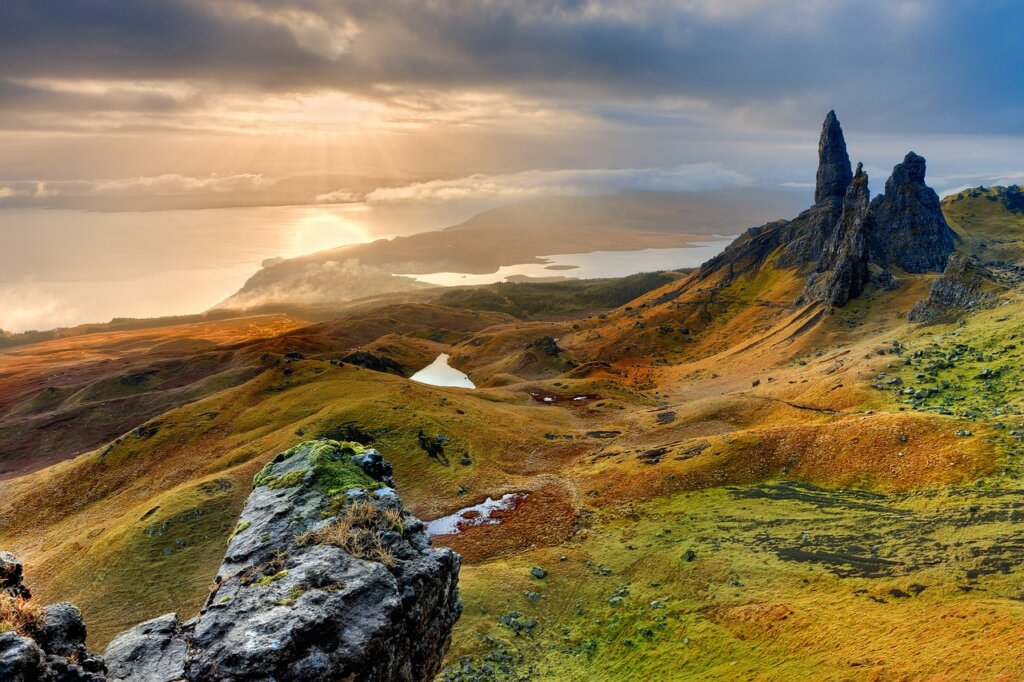
Travel is a time for us to do what we love, whether having a fun adventure or a relaxing getaway, but we have to travel responsibly. When we visit other places, we have the responsibility to treat them with respect and kindness because if we don’t, we risk damaging culture, heritage, and the environment.
The key is creating positive relationships between local people/culture and tourists. The good news is that this practicing such responsibility makes for a richer, more rewarding travel experience (see my other Quality Travel posts). Here are 31 tips for sustainable travel that we all should keep in mind the next time we travel.
1. Learn about the history before going
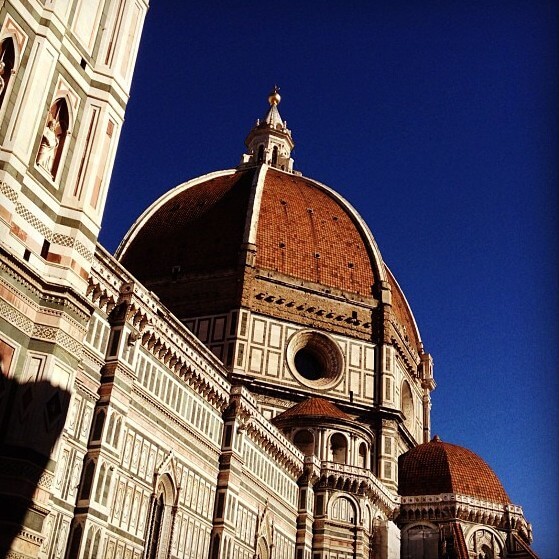
Learning about the history of the place we visit results in a richer experience with greater appreciation for what we see. I can’t imagine seeing the dome of Florence or the architecture of Venice without understanding at least a bit of the history because they would be just beautiful buildings with no context.
Fortunately, it’s easy to do this now–documentaries on Youtube or books set in our destinations can provide a foundation of understanding. Unfortunately, it seems that many of the world’s new tourists are traveling with little to no background knowledge (this is being said loud and clear in Italy, for example).
2. Use more sustainable modes of transportation
Take the train instead of an airplane. If flying is necessary, make as few stops as possible. Stay in a city where you can use public transportation, and if staying in the countryside, consider touring by bike.
3. Stay in hotels that work toward responsible, sustainable business
From eco-resorts to luxury hotels that give back to the local community and boutique hotels that capture an authentic sense of place, there are hotels doing positive work all around the world. We just have to look for them when we make travel plans.
4. Learn about local artisanry and buy gifts from local artisans

Artisans are a link between the past and the present–they use traditional artisan’s techniques and tools to make products for today’s market. Learning about their trade and supporting them by buying their products directly helps keep this important part of culture alive.
5. Visit markets where the locals go
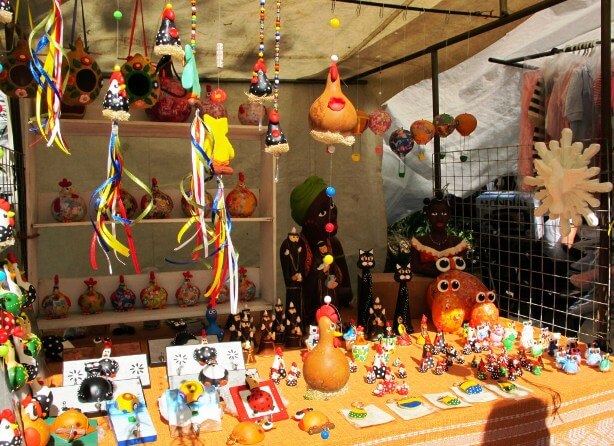
Skip the markets geared toward tourists and look for flea markets, often held in public spaces on the weekends. Here you can usually find goods made by local people, antiques, and fresh food. Flea markets also allow you to observe local people gathering together.
6. Become a lover of your hometown
We can lighten our impact on the globe by traveling locally, and what better place to start than your own hometown? Travel often involves dreaming about far away places, but traveling locally gives us a better understanding of where we live and why it’s special.
7. Support organic and sustainable
Look for businesses that use organic and sustainable methods. Restaurants using organic ingredients, sustainable wineries, organic ice cream shops, shops that promote sustainable farming or fair trade products, organic bakeries, and many other businesses are the leaders in the global movement toward greater consciousness about our environment, but they need our support to continue.
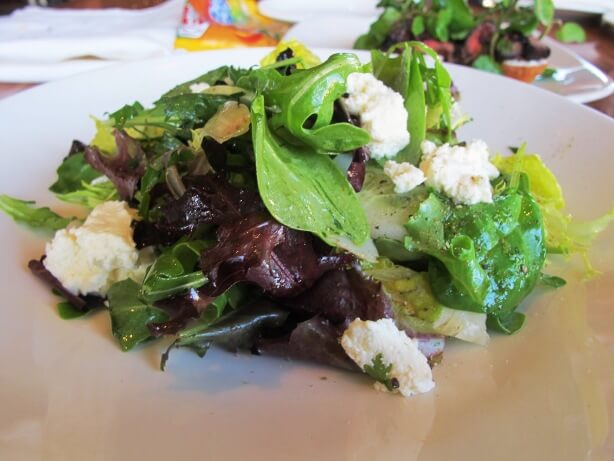
8. Get educated about the treatment of animals
When you plan your travels, check into the conditions at zoos, elephant parks, and sanctuaries. If you’re not sure, don’t support them, and if you see something that bothers you, let others know. In general, I avoid zoos that are not focused on conservation, and I refuse to visit Sea World, circuses, elephant rides using platforms, or tiger petting places, all of which use animals in unnatural or harmful ways.
9. Volunteer
Volunteering abroad takes travel to another level. It allows you to get to know local people and use your skills to help others. You might even learn new skills in the process.
10. Make responsible food choices

As I discussed in my post “Quality Travel: Making Responsible Food Choices,” the choices we make about food when we’re traveling have the power to help make positive change (or, conversely, contribute to the world’s food problems). By supporting local markets, organic and locally-focused restaurants, and cutting down on meat, we can promote sustainability.
11. Support good causes

Be on the lookout for organizations that work for the greater good–as we travel, we can support these places and spread the word about their good work.
12. Take a class in language, cooking, or another aspect of local culture
One of my most rewarding travel experiences was taking a two-week intensive course in German at the Goethe Institut in Munich. I stayed with a German family, learned about German language and culture, and made international friends. Best of all, I had a purpose for being in the city and left loving Munich and its people.
Rewarding experiences can be found no matter where you are traveling to. Look for classes of just a few hours to a few days in cooking, wine making, coffee roasting, art, and much more.
13. Visit food markets
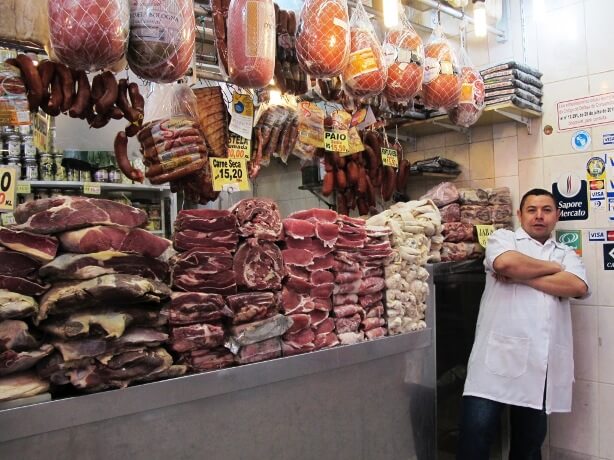
I love learning about food customs and talking with local people about food. Visiting the markets gives travelers the chance to see how local people shop for food, what is grown or made in that area, and what people like. The above market in São Paulo is a cultural experience full of sights and smells and proud vendors who enjoy showing off their products, including the famous bacalhao, or salted cod.
14. Visit only the main sights that you really want to see
The most common way of traveling is to make a list of the “top” sights and hit them one by one because, well, most people feel that if they’ve traveled all that way, they’d better see those sights. While famous places are famous for a reason, not all of them may be worth seeing for you.
Filling up your days with visiting that famous grave and wandering the rooms of that must-see museum might not give you time to enjoy the city and experience local life.
My approach is to make a list of the sights that I really want to see based on my interests and practical considerations like location, time, etc.
15. Ask the locals where to eat

This is one of my favorite tips. Get away from the overpriced tourist center restaurants, ask locals where to eat, and seek out restaurants that serve authentic, high-quality local cuisine not catered to tourists.
16. Get on the locals’ good side
Being friendly and inquisitive–without being needy–goes a long way. Besides enlightening conversations with locals in all the places I’ve traveled, getting on their good side has also helped me out in tense situations, like when I almost missed my train in Kutná Hora and was promptly driven to the station by a local who overheard my concern.
17. Travel more when you fly so you can fly less
Airplane travel is bad for the environment, so when we do fly, we should get as much out of that flying as possible. For instance, try staying for longer periods of time to maximize your airplane travel.
Use stopovers as a way to visit more places on the way (like stopping in Japan for a few days on the way to the rest of Asia, or stopping in NYC or Iceland on the way to Europe).
Often a “multicity” ticket can be booked for the same price, just slightly more, or even less than a regular one.
18. Buy carbon offset

As a way of making up for the environmental impact of your travels, you can purchase carbon offset when you book your tickets. The money is put toward advancing environmental protection.
19. Try the off season

I love to travel in the off season. I started doing this when I went to Italy the first three times, always in the winter. Traveling in the off season means that you deal with much smaller crowds while having more chance for authentic experiences.
Visiting then allows you to see what the place is really like and how locals go about their lives without the huge crush of tourists, especially in the world’s most visited destinations.
20. Have a local hangout
Find a cafe, bar, restaurant, piazza, park, or somewhere where you can go every day and have some downtime. I prefer to have this kind of downtime away from my accommodations so that I can still be around the people, observe daily life, and give a local establishment some business.
Twice when I spent a month in Florence, I went to a cafe every single day to write postcards, do research, and relax with coffee, and the routine made me feel like I had a connection to the neighborhood.
21. Be a smart traveler

Recently I heard Rick Steves give advice over and over that people need to be responsible, use their guidebooks, and do their research. He said something like if you have to wait in long lines in Italy, that’s your fault. I agree.
While it’s not always practical to spend a lot of time doing research, it really improves the travel experience–know more about the destination and its culture, ask questions, get city cards or museum passes, be prepared and unafraid, and just dig in!
22. Support responsible travel companies, such as responsible cruises
Even though cruises are definitely not high on my travel list, I like cruises (although I’ve been on just one), and I think they can be a convenient travel option for families. But the reality is that they are generally not examples of sustainable travel. They don’t allow travelers much time in the destinations and aren’t good for the environment.
However, there are smaller cruises such as Lindblad-National Geographic Alliance Expeditions, which focus on learning about the environment and support conservation, and Paul Gauguin Cruises, which use small cruise ships and support sustainable development on land.
23. Use the local language as much as you can
Learn the basic phrases and get a phrasebook to help you use the language for basic daily tasks. I honestly struggled with this the last time I was in Italy because everyone spoke such good English, but making the effort shows respect for the local people and helps you make connections with the people.
24. Take advantage of long-term placement programs like the Peace Corps
Possibly the best example of sustainable travel is living in one place for a while (and being able to travel to many nearby places), learning the language, and helping the local community with something important, like building medical facilities or improving education.
25. Support small local shops and find unique souvenirs
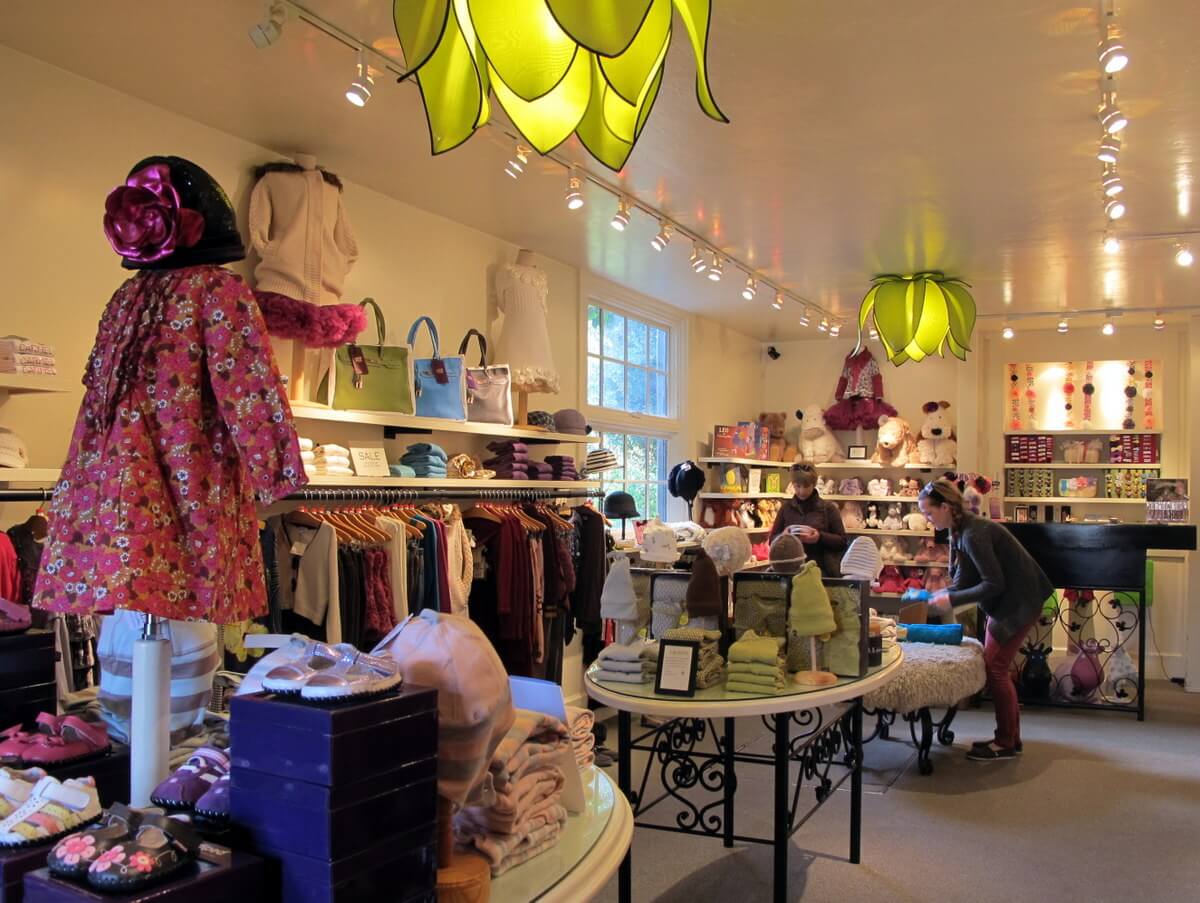
Get away from the city center where shops are often full of tacky souvenirs and look for small shops selling unique items. Not only do these shops make for fun browsing, but buying gifts or souvenirs here contributes to the strength of the local economy and supports small shop owners that sell quality products.
26. Teach your kids to be good travelers
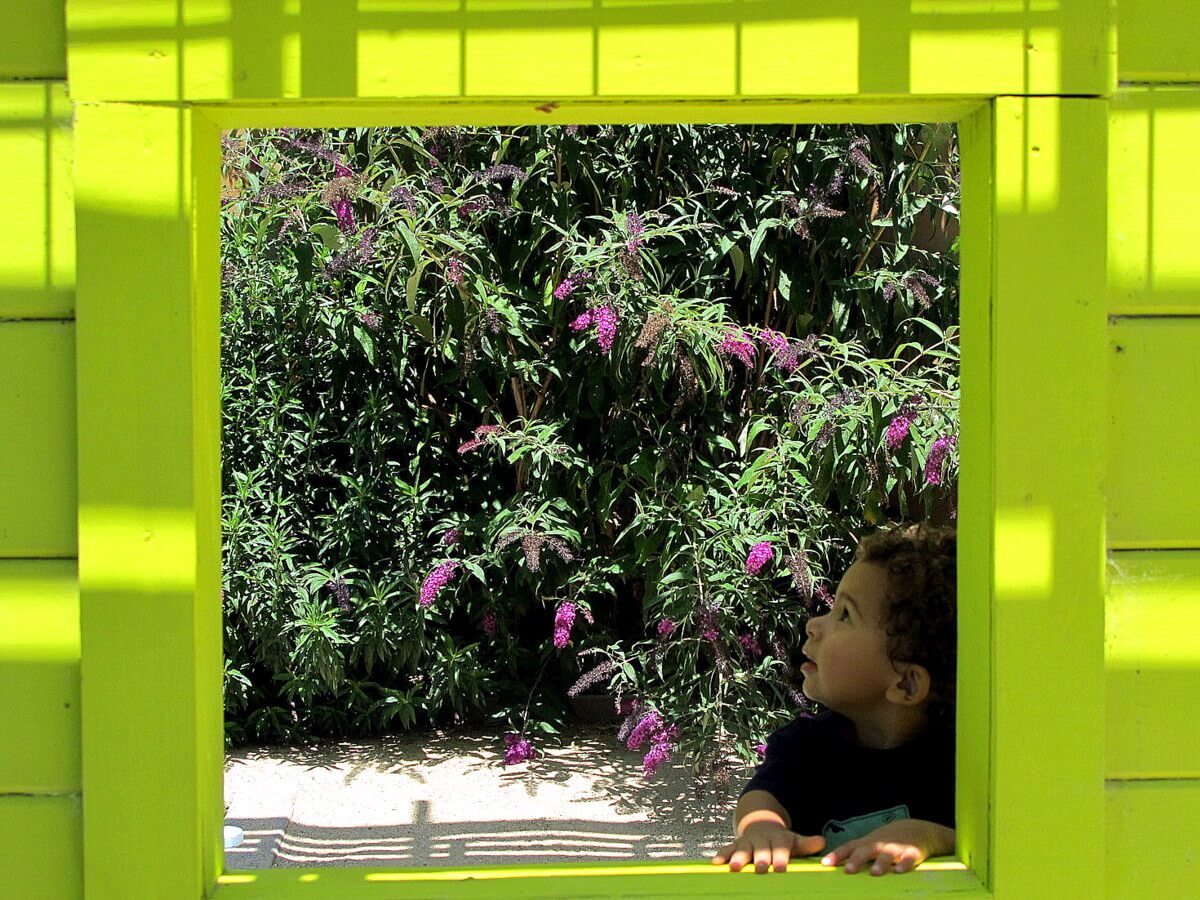
Our children are the future, so we must teach them good traveling values and the importance of traveling responsibly. The example we show them when they’re children will be their norm.
27. Get off the beaten track and make your own discoveries
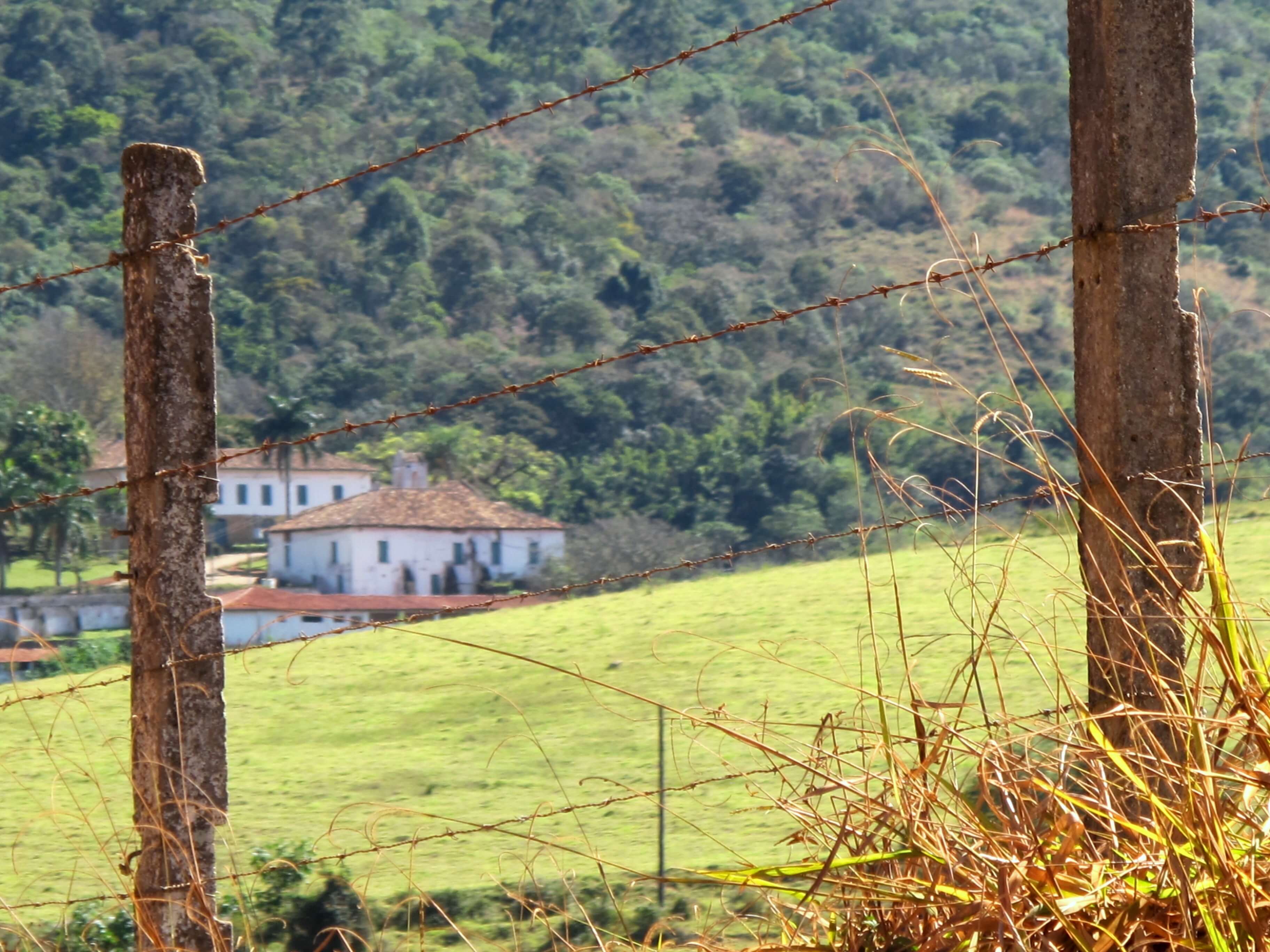
“Off the beaten track” may be tired words (so often used), but they are essential to good travel, in my opinion. I purposely look for places that are far away from crowds, not only because I prefer experiencing places where I won’t feel like one of a crowd, but also because we need to do this so that the most famous sights don’t become degraded from over-tourism.
28. Ask questions and learn from locals, not just from guidebooks or our limited assumptions
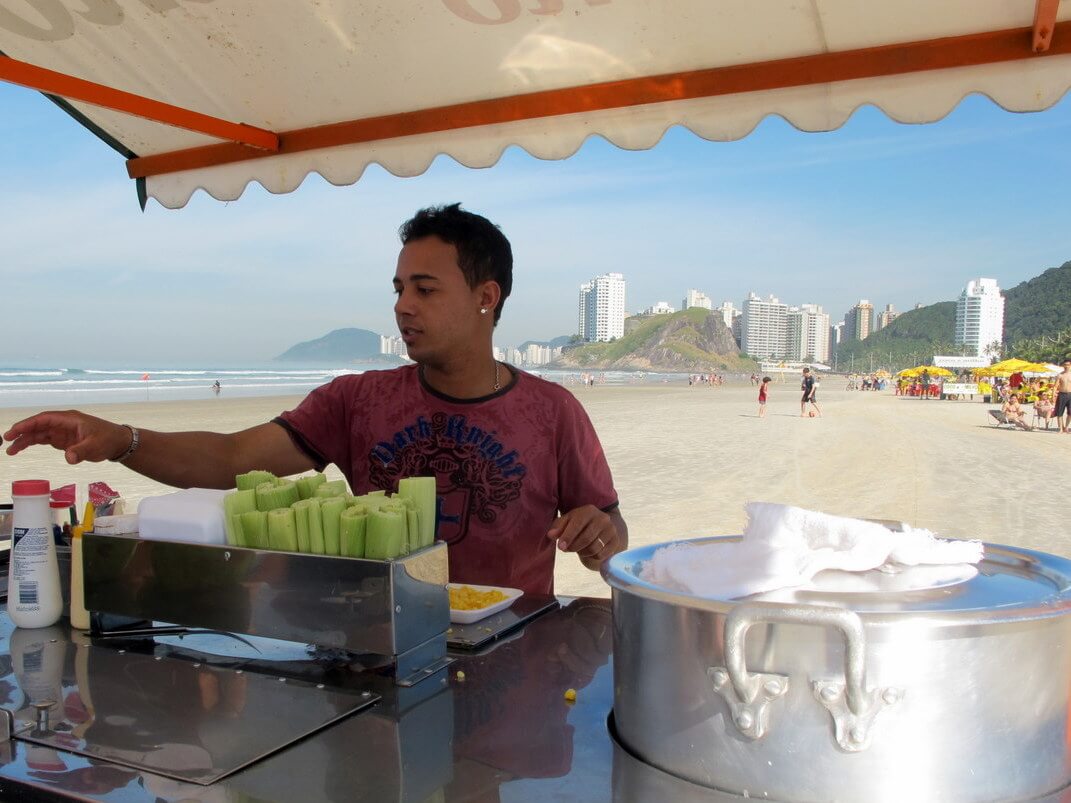
Approach travel as a learning experience. Ask questions, be curious and open to learning, and seek out the advice of local people.
29. Look for community events to attend
No matter where you are, seek out events in the community–museum events, gallery openings, festivals, free movie nights, etc. These are not just fun but are also a reflection of what local residents like and support. They also give you the opportunity to meet some locals and maybe even make new friends.
30. Observe local daily life

Traveling is so much more than sightseeing–it’s also a way to learn about a culture and lifestyle. Find out if there is a time of day when locals like to gather outside (such as the evening passeggiata in Italy) and become part of it. Visit town squares and outdoor markets and watch the people socialize.
Get up early and observe the locals setting up their shops and market stalls before the rest of the city is out. Visit a small town for one day and watch local life play out without the rush of tourists.
31. Travel slowly
This is the tip that summarizes all of the above. Travel is something we do for many reasons–fun, pleasure, escape, adventure–but when we do it slowly, we give ourselves the opportunity to do it carefully.
Traveling carefully, with time and attention, means that we can have the travel experience we want while having a positive impact on the places we visit.
Which of these tips are your favorites? What tips do you have for sustainable travel?


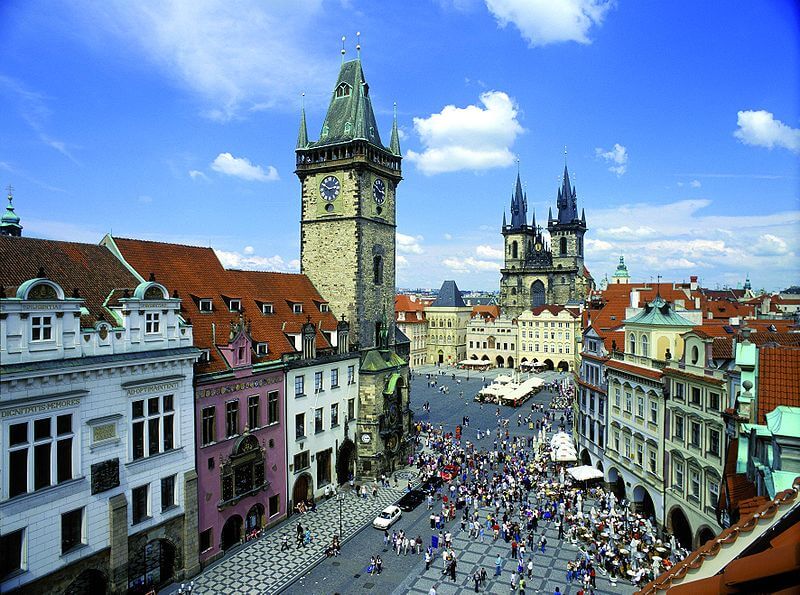

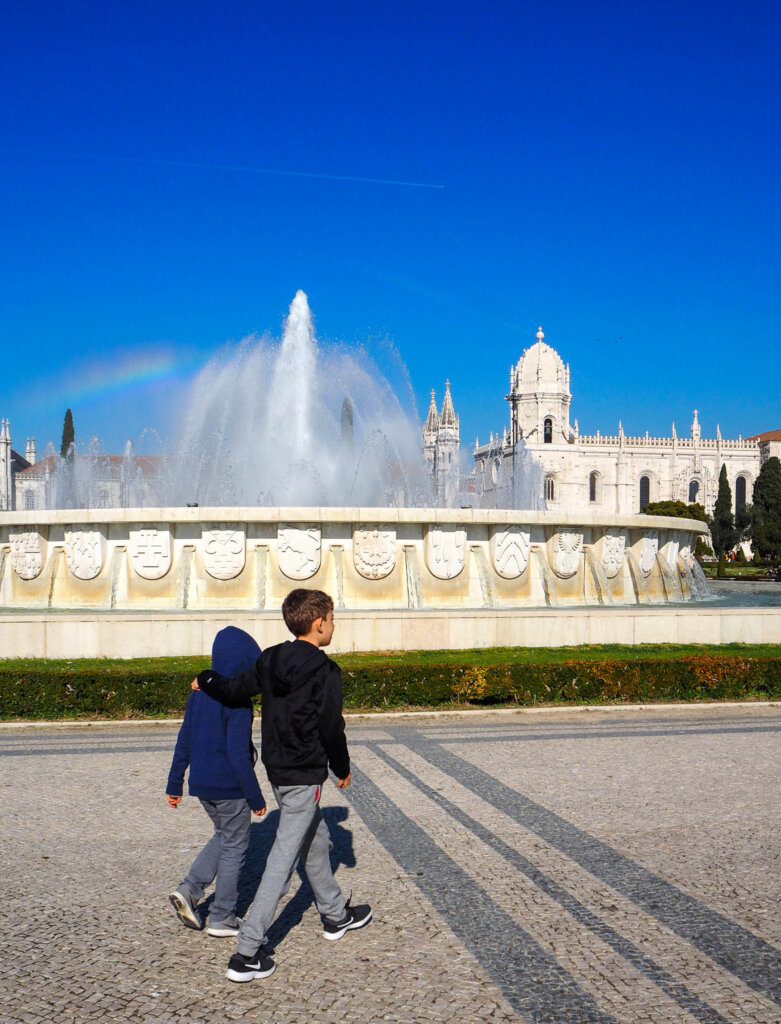
Really wonderful tips, Jenna! I have trouble balancing #17 (travel more when you fly) with #31 (traveling slowly) but by maximizing my time by only seeing the ‘sights’ I really want to see (#14) I’m starting to achieve that balance.
I like #6 (traveling close to home) a lot, too! Looking for local adventures helps to fulfill my wanderlust and is more sustainable, too!
I can see how #17 and #31 are hard to balance. I have been guilty of quick stopovers and would do it again because it seems like if I’m already there, it would be nice for me to maximize the time and flying and visit one more place. If I can get two trips out of one flight, I might travel to somewhere local the next time. Overall, though, I favor slow travel.
Luckily for us, there are plenty of local travel options in our area!
Thanks for this! Great list!
Great tips! I think traveling responsibly enhances the thrill of travel. If we all do our bit and follow some simple things like going local and doing less of touristy stuff, things will be much better on the travel front.
I hope so 🙂
Hi Jenna, I just discovered your website and am enjoying it very much. I especially like your view on sustainable travel and tips on how to experience a place in the most intimate way. Thank you!!
Thanks, Susan! I’m glad you left a comment because I now just discovered yours. Looks like we have a love of Italy and art in common 🙂
Wonderful tips Jenna. I tend to stay in B&Bs or inns when available to get the feel of community. Owners are often keen to show off their home locale and usually connected with other small business owners.
B&Bs are a great suggestion, too. Last spring I spent some time with the owners of a B&B in Napa and was impressed with how involved they were in helping their guests get to know the area. Their restaurant and winery suggestions were spot-on.
I love these tips so much! No only do these tips help the communities you visit, but they are the sure way to have an amazing travel experience.
Totally @27 – I have had so many incredible experiences by wander off the beaten path. Thanks also for pointing out that people should look for sustainable choices in their own hometowns.
I like what you said, and that’s something I firmly stand behind. Traveling responsibly is not a sacrifice–it actually makes for a better travel experience!
Amen, Jenna! these sensitive, intelligent tips add up to a genuine creed of responsible travel that benefits both the destination, the environment and the traveler. I can’t say enough about the importance of buying local crafts, staying longer to maximize the impact of the flight and have time to participate locally in depth, learn the history before you go. An important post I intend to share widely. Thanks for this!
Thank you so much for the thoughtful comment, Lesley!
Jenna – I have enjoyed a lot of your posts and this one is one of the best! These things should be talked about as much as needed to change how things are.
I’m glad to see you stressing the importance of supporting local businesses, locally-sourced food, and traveling to really engage with the culture of the place you’re visiting. It shouldn’t be about checking landmarks off your list, as great as it is to see them.
My favorite tip? The one about animals. I am not a fan of zoos, and the treatment of animals in circuses is a concern. I wouldn’t pay to see that.
Jenna, what a great round-up of ways to be a better traveler. When followed, I think they ultimately lead to richer, more authentic experiences.
On a side note, I didn’t know that you’d studied in Munich. We’ve been visiting family in Oberammergau (about an hour and 15 minutes away) this fall, and enjoying witnessing many of the local customs. These spots in the Ammergau Valley aren’t on the radar as much as say Berlin or the Neuschwanstein Castle, but it’s been fun being immersed in local traditions.
I would love to spend more time around Munich. I really enjoyed my time there.
So many great ways to preserve the land and local cultures! I am a big fan of traveling close to home, and I love supporting and recommending locally owned hotels, restaurants and shops when we visit other places.
I think traveling close to home is something we should all embrace. It was hard for me at first because I love to go somewhere far away, but that became less practical once I had kids. Now I travel close to home most of the time and really love it.
Great post! I tend to agree with all points, however, #15 and #16 have always led us to the best eats… which is a huge part of why I love travel.
Definitely–when we come upon great food experiences, it’s so satisfying!
I absolutely LOVE this. It’s what we do, it’s the travel philosophy we embrace, and our lives are much better for it. I fully espouse slow travel, for people that have time – it’s all this, plus more. Brava!
Thank you so much, Jessie!
So many great tips! Interesting you mention the treatment of animals. We stay at one particular resort in Cabo San Lucas, where many of the guests volunteer to “dog walk” the dogs at the local shelter. It’s a nice way of “giving back” – plus it’s fun to take a dog for a walk!
I love that! And the dogs must really love it! Thanks for sharing.
Awesome post! My husband and I go to Tuscany and stay in beautiful villas once a year for our anniversary. This year is our 20th anniversary, so I’m thinking about staying a little longer. You have given me lots of great ideas for my next adventure 🙂 Thank you!
What a great tradition!
Such wonderful tips, Jenna! Learning about a place before you visit makes for such a richer experience. Staying away from the touristy shops and supporting the local artisans is another one I love. Community events, travel slowly, loved them all!
Thanks, Laurel. I know that sustainable travel aligns with your style of travel, too. 🙂
Eating in small restaurants is usually better anyway. It depends, of course, but sometimes a random noodle cart will have the best food in town.
True, and I find that the local people give me the best recommendations of where exactly to go.
Great article! Many of these tips I have used in my previous trips in Europe and South America (like knowing the locals, visiting markets, etc,), but it was an eye opener for many other things. I will consider them in my round-the-world trip I am planning for next year. Cheers!
Have a great trip! You will have many opportunities to travel responsibly as you go, I’m sure!
Very useful tips for any traveler. Thanks you for sharing them!
What wonderful tips! Sharing!
I do most things you suggest and I think because I am often self propelled and traveling by foot, bike or kayak my trips are pretty green ONCE I get to where I want to go. I do agree with the point you made about taking longer trips and flying less.
But I wonder about some of the sights and National Parks that are really under threat because they are so visited, Do we need to run more lotteries to gain access? Do we use more permits for example rafting the Grand Canyon so you have a better experience? I don’t think there are easy answers.
Not sure what happened to my original reply to your comment…but I just noticed that it’s gone. I hadn’t thought about the problems at national parks before, but I know that limiting access would be very hard to pass here in the U.S. where everyone expects to be able to go wherever and people think the parks system is for all…for better or worse. Thanks for adding your perspective, and I’ll look into the pressure on parks more.
Extraordinary article. A definition of sustainable tourism is the growth of the private sector conceals the environment surrounding him. I think that many entrepreneurs from the sector are open to this kind of trend. Sustainable tourism is the future.
Yes, it certainly is the future. It must be.
Great tips! I love #4–buying gifts from local artisans gives you unique souvenirs too! I always love local treasures 🙂 I also like the tip about taking a class–they are always so fun to do!
Thanks 🙂 Local souvenirs are so nice to keep and support the local people, too.
I agree that you should learn about the history of somewhere before you visit it. That way, you will be able to appreciate it more. It will probably make the trip more fun, too, since you will have some context for things that you see.
Great tips as always you give us. You have given some good travel tips which is very important for a traveler before he travels to a certain place. Thanks for the useful information.
Great ideas! And here is also an easy way to care about our planet while traveling! For every booking that originates on bedandtree.com, one tree is being planted – without any charge to the user. Cooperation partners include the world’s largest booking platforms, such as Booking, Skyscanner, Expedia, TripAdvisor etc, hence you can plant trees when booking hotels, flights, cruises, rental cars etc.
It doesn’t cost you a single Cent, just one click of your mouse:)